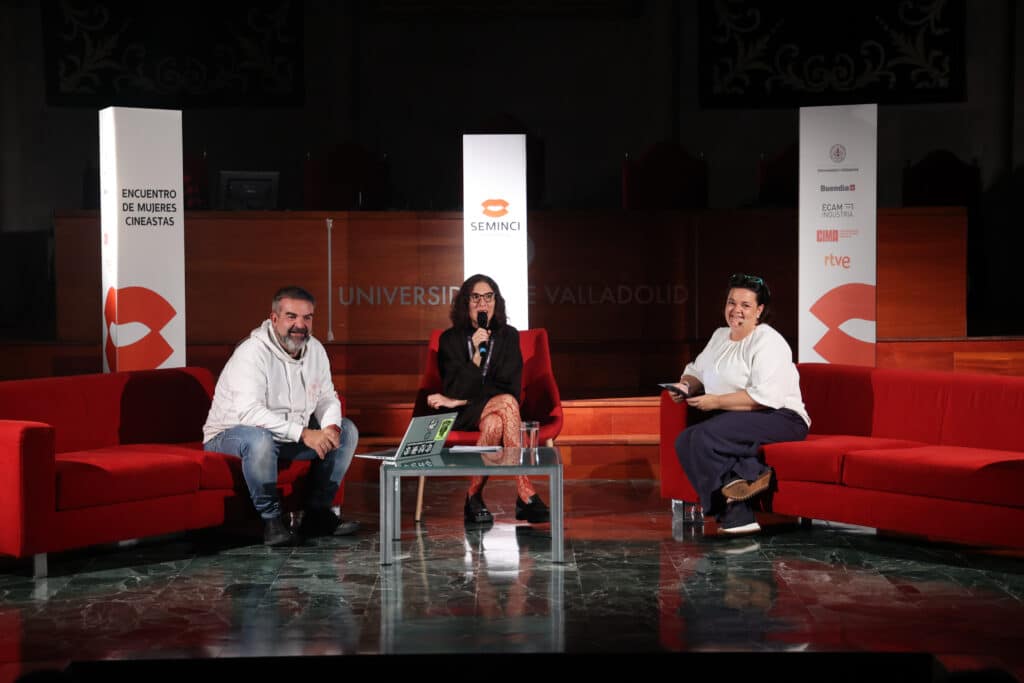The Meeting of Women Filmmakers organised by SEMINCI also served as a forum for the presentation of the conclusions of the Equality Observatory created by RTVE in 2018 to monitor content and guarantee respect for equality rights. Presented by Nekane Acha, RTVE’s Equality Delegate, and the Deputy Director of Cinema of the Fiction and Film Department, Gervasio Iglesias, both recalled the measures developed by RTVE in favour that have contributed to the current emergence of Spanish cinema directed or created by women.
One of the measures included in the State Pact against Gender Violence calls for the incorporation of measures related to equality and the prevention of gender violence in the selection made by RTVE’s Film Committee among the film projects whose production is co-financed by RTVE. To cover this measure, the Bechdel Test has been incorporated into the scripts studied to assess the aid.
The study, which is carried out without the readers of the scripts knowing who the project belongs to, assesses criteria such as the presence of women as producers or directors, the presence of female characters as protagonists, the promotion of gender equality in their plots, diversity or the fight against gender-based violence.

Among the 2022 projects, of the 80 projects selected, 38.74% were directed by women, close to the desired 40% and the percentage of women who submitted projects for selection. In the 2023 film roundtables, of the 75 projects selected, there were 27, 36%. In 2024, 260 projects were submitted in the area of fiction and film, 68 of them directed by women, 26.15% less than in 2022 and 2023, although the percentage of those approved has increased: of the 62 approved, 23 belong to women, 37% of the total. If documentaries are added, the overall percentage rises to 39%, which exceeds the minimum 30% established by the General Law on Audiovisual Communication of 2023.
According to Gervasio Iglesias: ‘The presence of female producers is fundamental to the increase in the quality of the projects presented by women. If it hadn’t been for the fact that many women have joined the difficult task of production, many films would not even have been considered’.
As Begoña Donat, the moderator of the event, summed up, the fact that there are more women in all sectors of the film industry allows for a change in the way we look at things. ‘Hopefully the National Film Award to María Zamora, the second producer to receive it, will open the way for more stories to be told from the perspective of diversity, periphery and gender’.



























![Logo Foro Cultural de Austria Madrid[1]](https://www.seminci.com/wp-content/uploads/2024/09/Logo-Foro-Cultural-de-Austria-Madrid1-300x76.jpg)








